Storage requirements for AAA games continue to grow each year. While PC gamers have a wide array of storage options and to expand with ease, the situation is a bit more complicated for console gamers on current generation hardware, particularly those using the PlayStation 5, PS5 Pro, and Xbox Series X/S.
The Xbox Series X is available with a 1TB SSD, offering approximately 800GB of usable space for games and apps, and a 2TB version with 1.6TB accessible to the user. The Series S, on the other hand, comes in a 1TB model or a 512GB version, the latter providing just 364GB of usable storage. Beyond this, both consoles support running current-gen games exclusively from official expansion cards manufactured by Seagate or WD. However, they can play Xbox One titles from any USB 3.0 drive and allow transferring new games to and from these external drives for storage purposes.
The original PlayStation 5 features an 825GB SSD, of which 667GB is available for games and apps. The PS5 slim model, released in 2023, increased storage to 1TB, with approximately 840GB usable. The PS5 Pro, meanwhile, includes a 2TB SSD, with almost 1.9TB accessible to users.
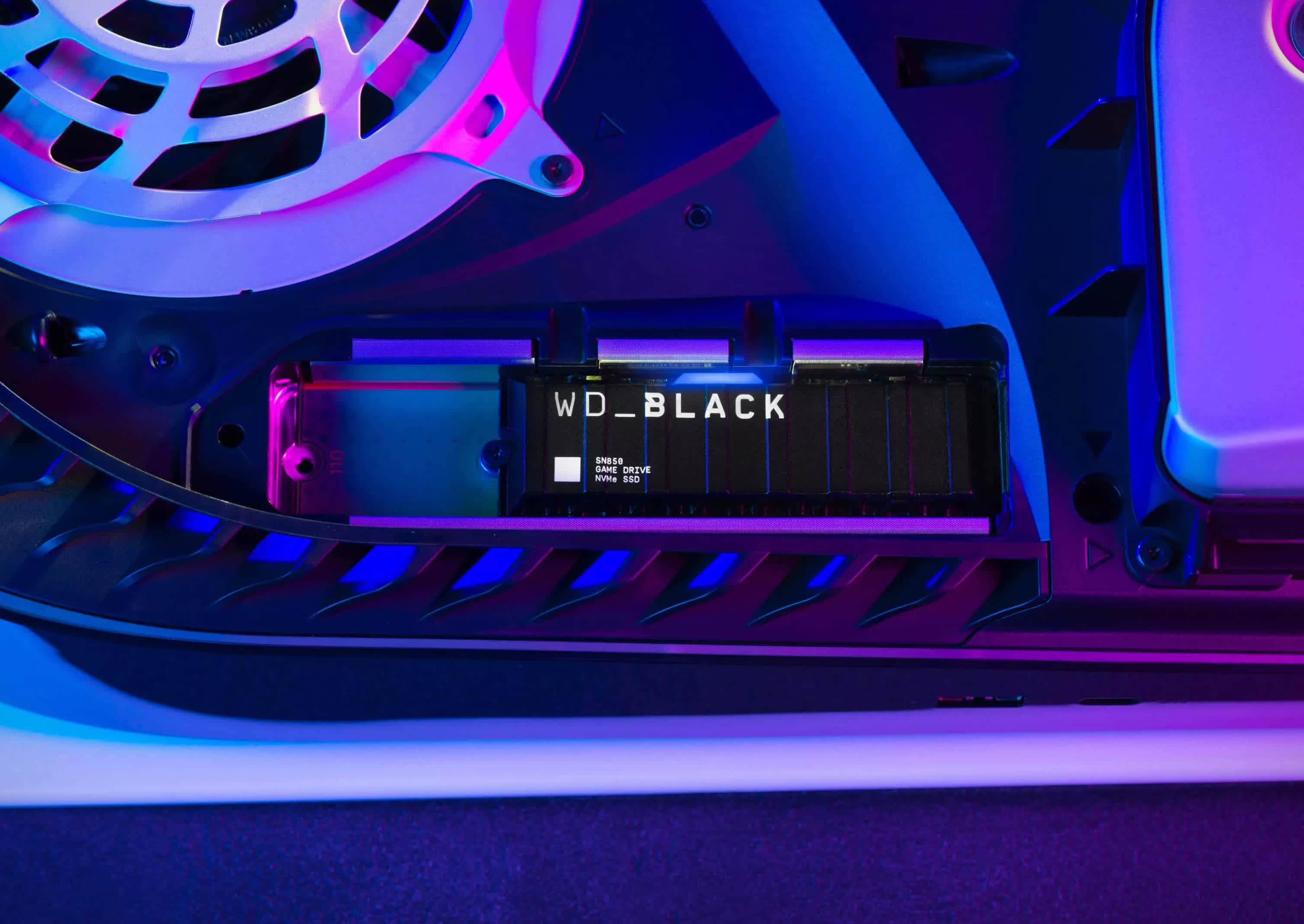
In terms of upgradability, the PS5 series offers more flexibility than Xbox consoles, thanks to its internal M.2 slot. However, this comes with notable constraints. Some SSDs are officially endorsed as PS5-compatible, while others are marketed as compatible by their manufacturers. Similar to Xbox consoles, the PS5 can play previous-gen games from a USB drive or use the drive for storing current-gen titles.
The PlayStation 5 does not support SATA drives, even those in the M.2 form factor. Moreover, it requires SSDs to support PCIe 4.0 speeds and four PCIe lanes, with a recommended sequential read speed of 5,500MB/s. The PS5 also lacks support for host memory buffer (HMB), meaning SSDs without dedicated DRAM may experience slower game load times and a reduced lifespan.
Additionally, the dimensions of the drive's heatsink are strictly regulated: it must be no wider than 25mm (only 3mm more than the drive itself), no taller than 2.45mm beneath the drive, and no taller than 8mm above it. If you have a compatible drive but lack a suitable heatsink, you can purchase a generic compatible heatsink for as little as $7 (or $9 if it's a high-capacity, double-sided drive).
Whether you're looking for a drive to expand storage for current-gen Xbox or PlayStation 5 games, or an external drive for legacy titles, this guide has you covered.
Best PlayStation 5 SSDs
WD Black SN850X | Corsair M600 Pro LPX | Samsung 990 Pro
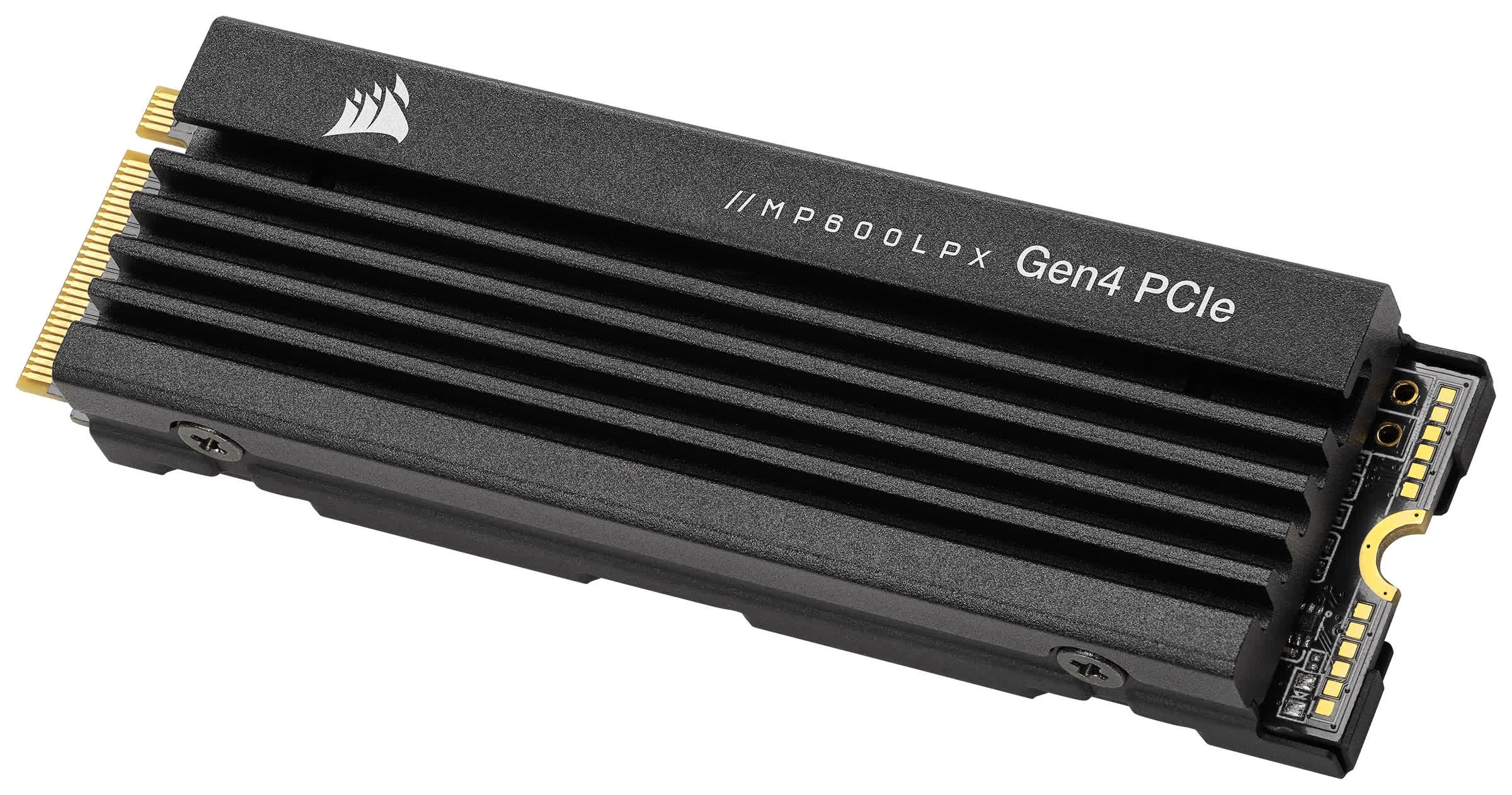
When choosing a drive for your PlayStation 5 console, the first factor to consider is capacity. If you need 8TB of storage, the WD Black SN850X is the obvious choice. With denser flash memory than the other versions, it can use the same number of dies as the 4TB model and see no performance loss. An empty 8TB drive will have a big enough writing cache to copy over the entire content of a full PS5 Pro drive at full speed.
As of writing, the version without a heatsink is $80 cheaper than the one with a heatsink. You can save money by pairing it with a third-party heatsink that fits double-sided drives, which costs around $9.
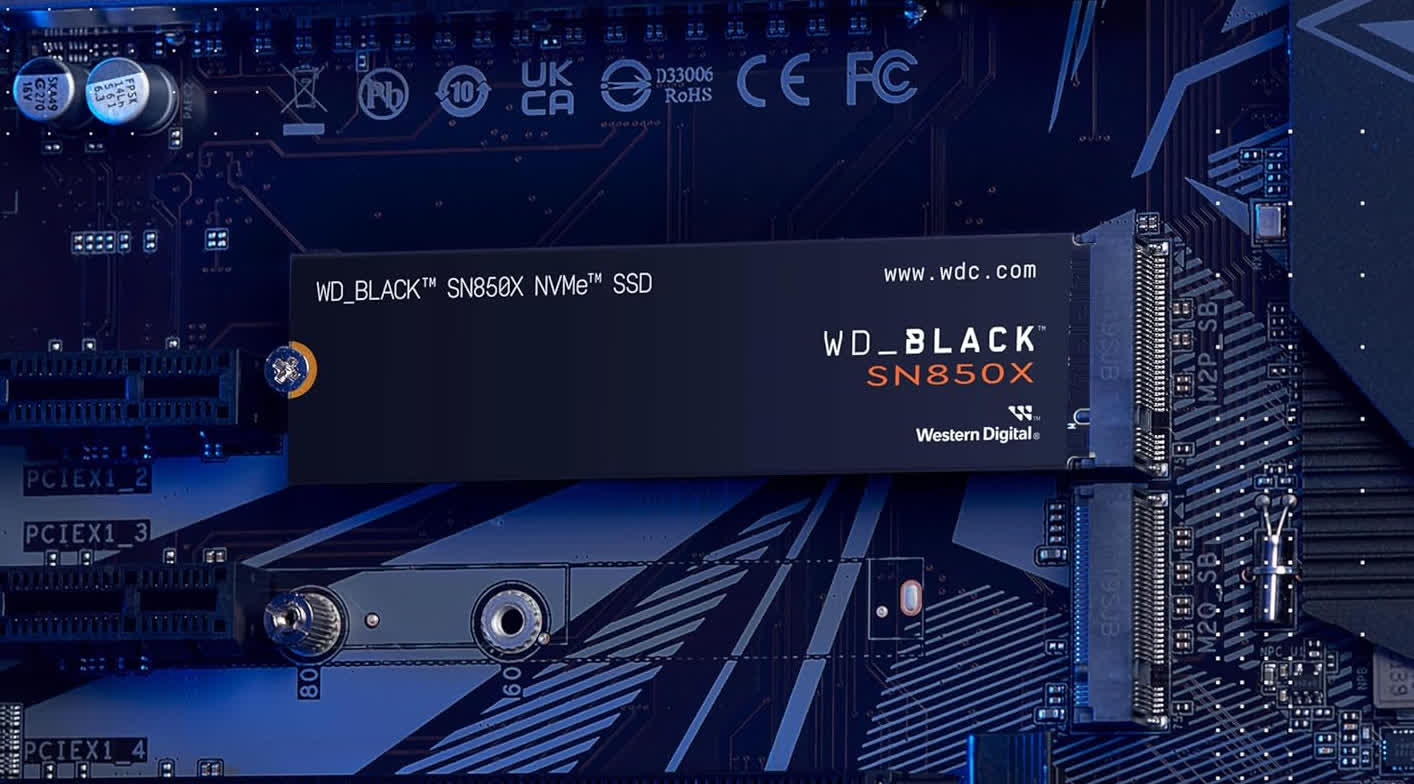
In case you were wondering, the SN850P is basically the same drive, with a special heatsink design that allows it to display a bigger PlayStation logo, for even more money.
For a 4TB drive, the SN850X is still a solid choice, but there are two other options with a single-sided design that simplify cooling and come with reasonably priced heatsinks. For PS5 Pro users, the Corsair MP600 Pro LPX is a better fit due to its superior sustained write speeds. Meanwhile, PS5 users may prefer the Samsung 990 Pro, which offers greater efficiency and slightly faster game load times.
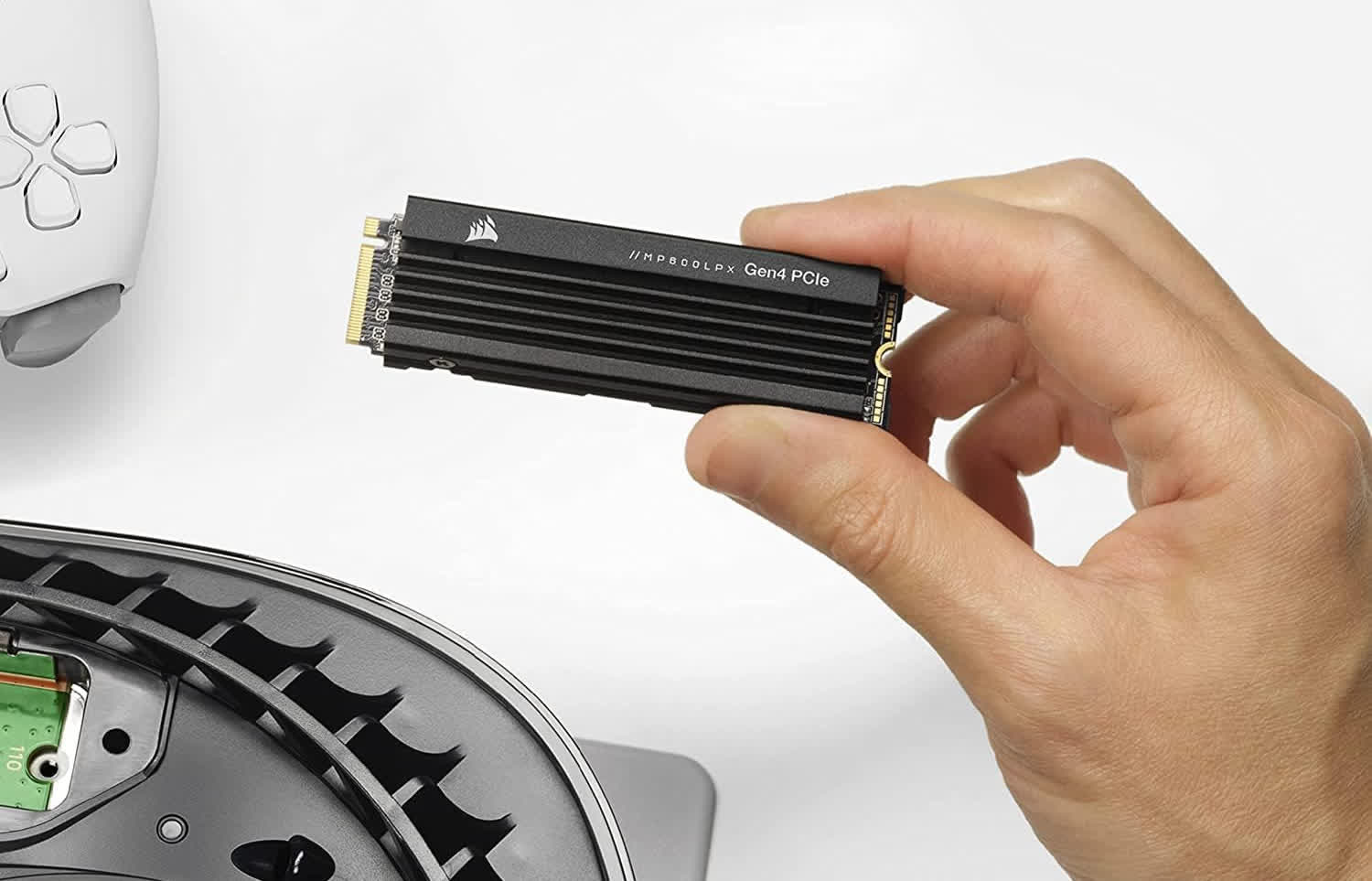
If 2TB of storage is sufficient, the single-sided SN850X 2TB is back in the race. Another good option is the SK Hynix P41, though it doesn't include a heatsink. While all of these drives are also available in 1TB versions, they typically offer either lower performance or a much higher cost per terabyte.
Xbox Storage Expansion Cards
Seagate Expansion Card or WD Black C50

With the current Xbox lineup, storage expansion couldn't be simpler. Both the WD Black C50 and the Seagate storage expansion card provide identical functionality. Just choose the capacity you want and get the more affordable option available.
Both drives are available in 2TB, 1TB, and 500GB versions. If your budget allows, we recommend going for the 2TB card. It not only offers better performance but also provides greater flexibility and convenience compared to buying two separate 1TB drives at different times.
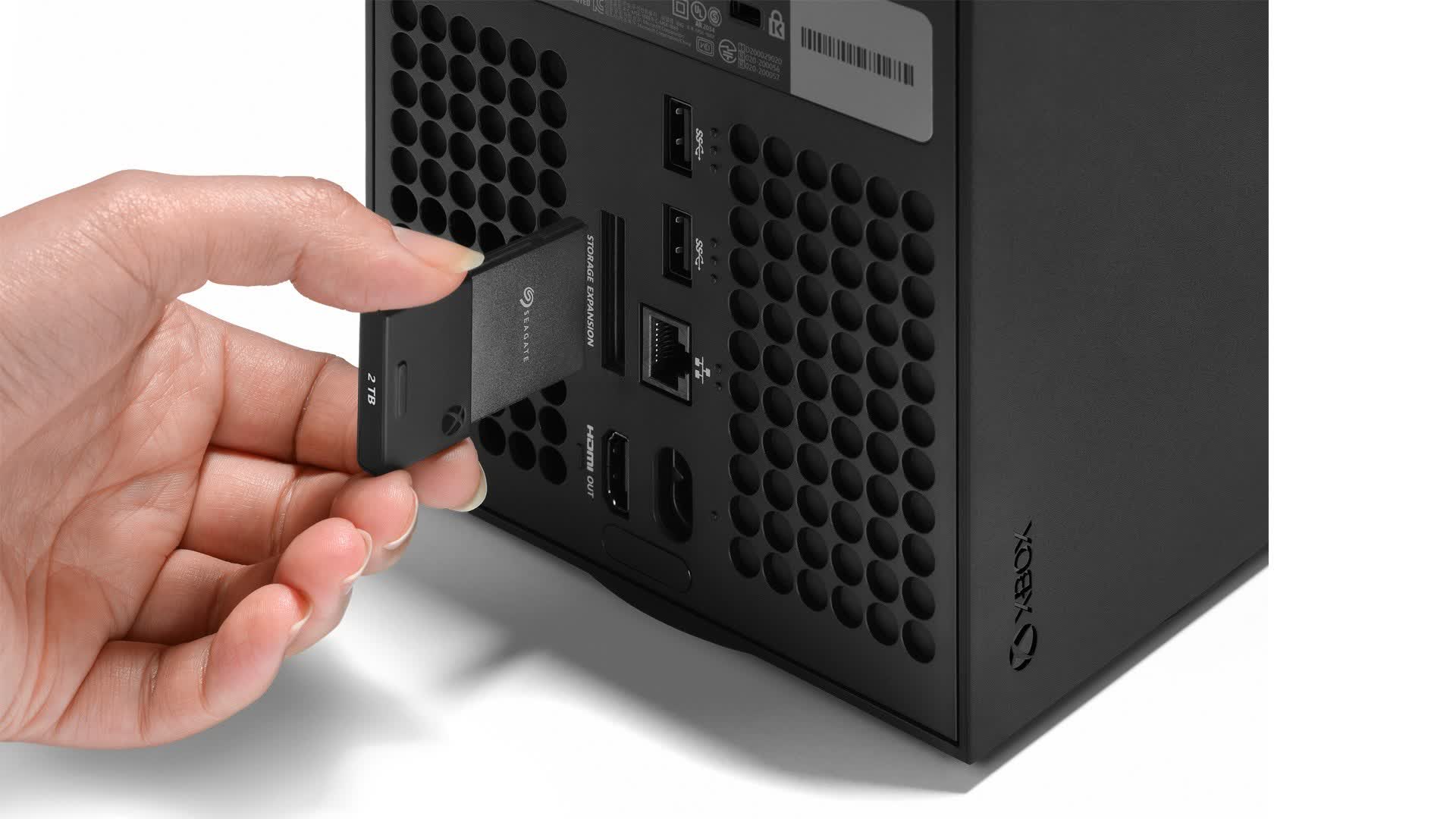
While Xbox Storage Expansion Cards are significantly more expensive per GB than M.2 drives, they are far easier to install. This simplicity positions the Xbox as a more user-friendly, family-oriented option, while the PlayStation 5 caters more to power users who value performance.
Best External Drive
Crucial X9 Pro Portable SSD

Xbox One and PlayStation 4 games were designed to run off a spinning disk, but can still enjoy the faster load times of an SSD. The Crucial X9 Pro stands above the crowd thanks to its dedicated DRAM, especially when the drive houses hundreds of GBs. When connected to the PlayStation 5's USB-C port, it can also transfer games from other drives at 1050MB/s. Unlike its predecessor, the X8 Pro, the X9 Pro rarely drops below this speed.
For Xbox users, connecting the Crucial X9 Pro requires a USB-C to USB-A adapter. While transfer speeds are limited to 400MB/s in this setup, game load times remain virtually indistinguishable from those on the PlayStation. The X9 Pro is also built for durability, featuring two-meter drop resistance and an IP55 rating for water and dust protection – more than adequate for a drive that is unlikely to move frequently.
A good alternative is the Samsung T7 Shield, usually available for a similar price per GB. It doesn't have DRAM, but it does have a USB-A connector. It's just as fast as the Crucial drive for data transfers and it's also rated for three-meter drops, IP65 water and dust resistance.
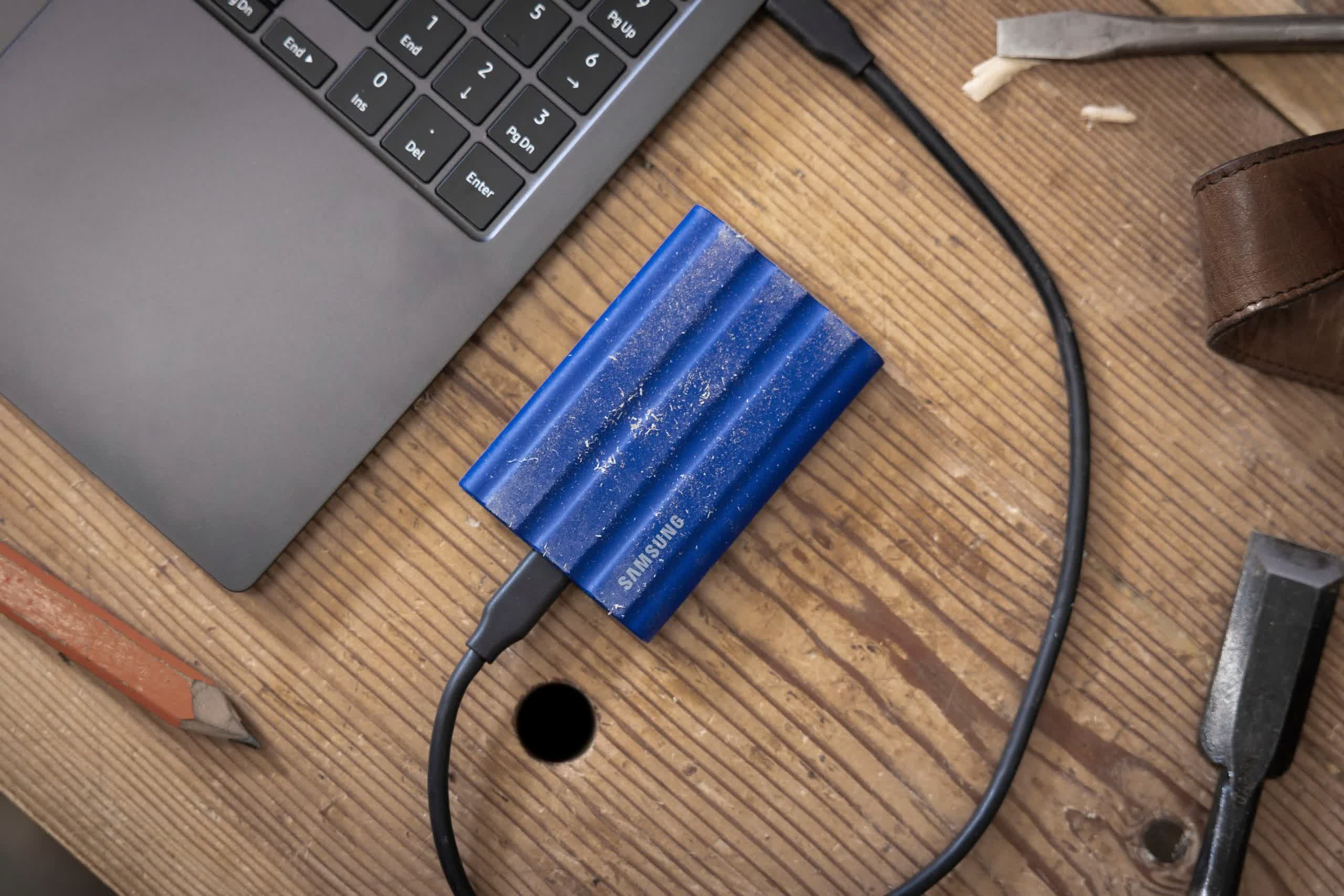
If you're looking to download a huge library of previous-gen AAA titles onto a single drive on the cheap, the Western Digital My Book series (offering several TBs of storage) still offers good value. However, it does have a significant drawback when used with an SSD, as its transfer speeds max out at around 175MB/s, creating a noticeable bottleneck.
For those willing to sacrifice even more load-time performance in favor of a compact drive that doesn't require an external power source, the WD Passport series is a reasonable option. However, data transfer speeds are limited to just 130MB/s, which is slower than other options but still sufficient for legacy game storage.
